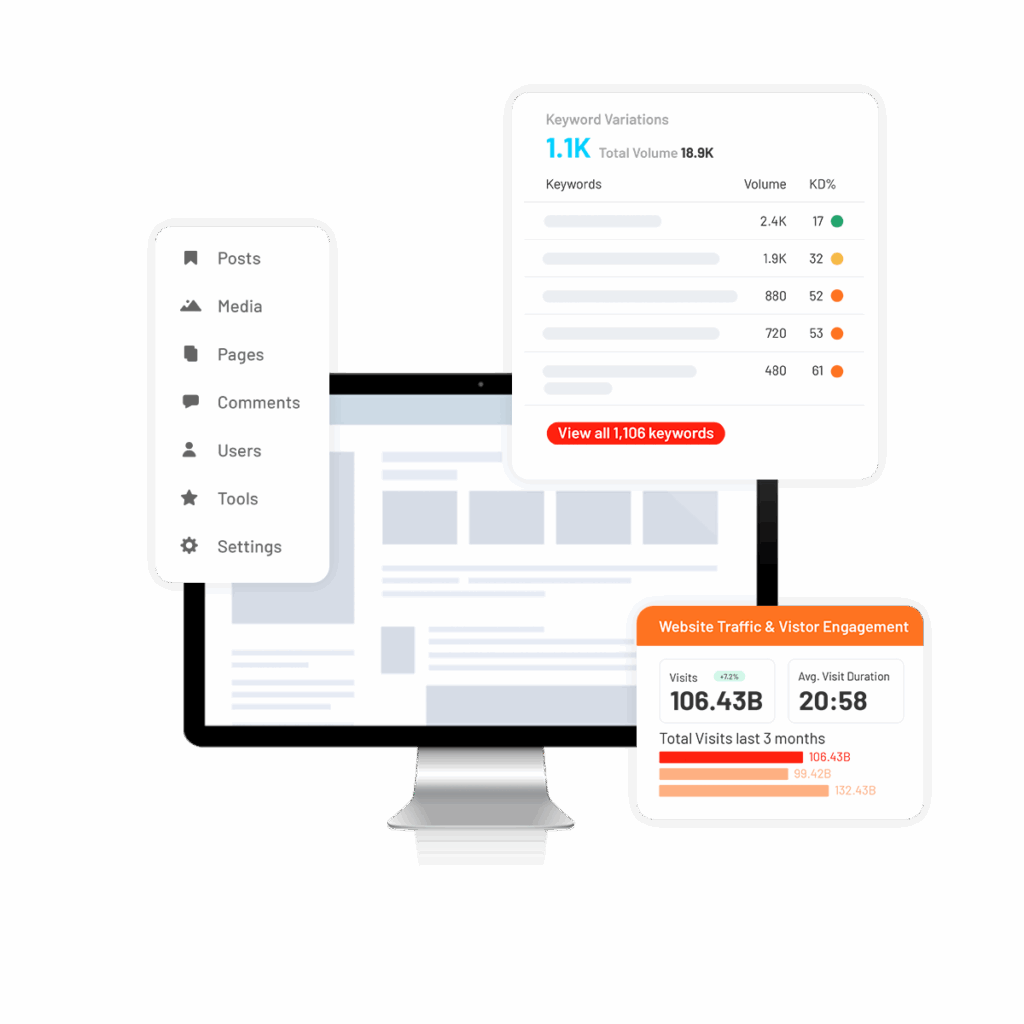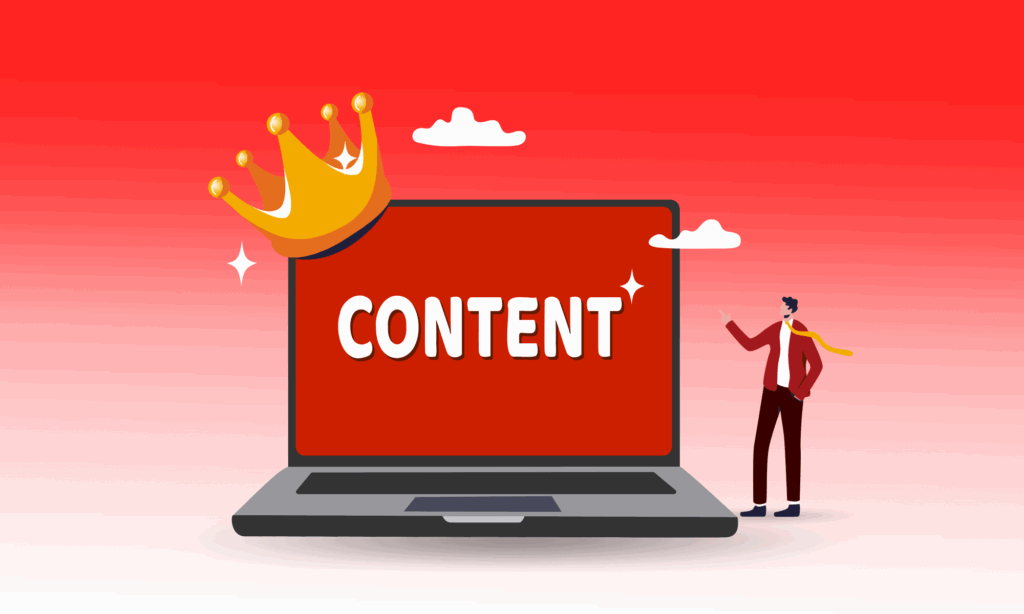Growing Lead Generation Trends: What to Expect and How to Prepare

The Rise of AI and Automation
Artificial Intelligence (AI) and automation transform how businesses approach lead generation. These technologies are becoming deeply integrated into marketing strategies, enabling companies to operate more efficiently and effectively. Businesses that embrace AI and automation can streamline processes while uncovering new opportunities for growth and innovation.
Enhanced Data Analysis
AI-powered tools allow marketers to analyze massive volumes of data with remarkable speed and accuracy. This helps identify high-potential leads more strategically, while predictive analytics allows marketers to anticipate customer behavior and preferences. By leveraging these insights, businesses can create highly targeted, data-driven campaigns that resonate with their audiences. Machine learning further strengthens this process by continuously refining strategies based on past interactions and outcomes.
Chatbots and Virtual Assistants
Chatbots are becoming more sophisticated, moving beyond simple Q&A responses to meaningful conversations that guide prospects through the sales funnel. AI-driven chatbots and virtual assistants can answer complex questions, recommend products or services, and nurture leads in real time. This immediate, personalized engagement enhances the customer experience and significantly improves conversion rates.
Virtual assistants can also handle higher inquiry volumes without compromising quality, providing tailored recommendations based on user behavior and preferences. This creates a more engaging and relevant experience for potential leads while reducing operational costs.
Personalization at Scale
Today’s consumers expect marketing experiences tailored specifically to their needs. Personalization has evolved from basic demographic targeting to hyper-personalized interactions built on behavioral data, past engagement, and predictive modeling. Businesses that embrace personalization at scale can create deeper relationships, enhance customer satisfaction, and foster loyalty among their audiences.
Dynamic Content Delivery
Dynamic content adapts to individual users in real time, ensuring they receive information that aligns with their interests and stage in the buyer journey. Adaptive landing pages, personalized email campaigns, and context-based messaging are now essential to a modern lead generation strategy. Real-time analytics empower marketers to adjust campaigns instantly, making the experience feel more like a conversation than a one-way interaction.
Segmentation and Targeting
Advanced segmentation powered by AI allows marketers to create micro-segments within their audience. By combining behavioral data with demographics and firmographics, businesses can deliver precisely targeted messaging to niche audiences. This level of targeting improves ROI and strengthens engagement by ensuring every interaction feels relevant and valuable.
The Evolution of Content Marketing
Content marketing continues to be a cornerstone of lead generation, but it’s evolving to meet rising consumer expectations. Audiences want immersive, interactive, and highly relevant content that doesn’t just educate but also entertains and inspires action.

Interactive Content
Interactive experiences like quizzes, polls, calculators, and augmented reality tools quickly become powerful ways to engage prospects. These formats capture attention, generate data-rich insights, and create memorable interactions that encourage deeper brand relationships. As user-generated and participatory content grows, brands that embrace interactive campaigns will build stronger communities and increase loyalty.
The Power of Video Marketing
Video remains one of the most effective ways to capture attention and communicate value. Short-form videos, live streams, and even shoppable video experiences drive conversions by creating direct, frictionless buying opportunities. Storytelling combined with personalization takes video marketing to the next level, allowing businesses to create emotional connections while addressing specific customer needs.
Social Media Strategies for Lead Generation
Social media remains a dominant channel for lead generation, but the platforms and strategies are changing. Businesses must stay agile, adapting to new networks and shifting user behaviors to maximize engagement.
Emerging Platforms
New platforms focused on video and short-form content are rising in popularity. Brands must continuously evaluate where their target audiences are most active and be ready to test and invest in emerging social channels. Technologies like augmented reality (AR) and virtual reality (VR) are also becoming more accessible, offering new ways to create immersive brand experiences that drive engagement and conversions.
Influencer Collaborations
Influencer marketing is evolving toward deeper authenticity. Businesses are seeing strong results when working with influencers who have highly engaged, niche audiences and align closely with their brand values. Micro-influencers, in particular, can foster trust and deliver more personalized, high-impact messaging that resonates with followers and drives conversions.
Navigate Your Options With Ease – Grab Our FREE Lead Generation Comparison Guide to Identify a Solution That Works Best for Your Business.
Data Privacy and Compliance
Data privacy is no longer just a regulatory concern—it’s a key factor in building trust with potential leads. As privacy regulations like GDPR and CCPA become more widespread, transparency is essential for maintaining credibility and staying competitive.
Building Trust Through Transparency
Consumers want to know how their data is being collected and used. Clear communication about privacy practices, detailed policies, and visible trust signals build confidence and encourage engagement. Brands prioritizing transparency will foster stronger relationships and differentiate themselves in crowded markets.
Consent-Based Marketing
Modern lead generation requires explicit opt-ins from users. Businesses must provide clear value upfront (whether through exclusive content, personalized experiences, or special offers) to encourage prospects to willingly share their information. As consent-based marketing grows, companies focusing on ethical, value-driven practices will benefit from higher loyalty and long-term relationships.
Omnichannel Lead Generation
Today’s buyers interact with brands across multiple touchpoints, from websites and social media to email and paid ads. An omnichannel approach ensures seamless, consistent, and connected experiences.
Integrating Channels
Integrating all lead generation channels creates a cohesive customer journey. Tools like marketing automation and CRM platforms help track user interactions, predict needs, and deliver relevant messaging at every step. This not only improves the experience for potential leads but also creates operational efficiency for businesses.
Cross-Channel Campaigns
Cross-channel campaigns reach leads wherever they are in their journey. By leveraging data, businesses can deliver personalized and timely messages across multiple platforms. Retargeting ads, social engagement, and email follow-ups work together to keep brands top-of-mind and encourage conversions.
Emphasizing Customer Experience
Customer experience is a critical differentiator in modern lead generation. Businesses that prioritize creating seamless, positive interactions will attract more leads and turn them into lifelong customers.
Streamlined Processes
Simplifying the process from lead capture to conversion improves the overall experience. Automation tools can reduce friction by ensuring quick, relevant responses to inquiries, while CRM integrations provide a comprehensive view of customer interactions for more personalized engagement.
Feedback Loops
Collecting and acting on customer feedback is essential for continuous improvement. Surveys, social listening, and direct engagement provide valuable insights into customer preferences and pain points. Acting on this feedback builds trust and encourages advocacy, strengthening long-term relationships.
Preparing for What’s Next
To thrive in this ever-changing environment, businesses must adapt proactively to rising lead generation trends.
Invest in Technology
Modern lead generation requires powerful tools. AI-driven platforms, automation software, and advanced analytics enable businesses to optimize campaigns, streamline workflows, and gain actionable insights. Integrating these technologies with CRM systems creates a unified view of the customer journey and supports highly personalized marketing strategies.
Commit to Continuous Learning
The marketing landscape evolves rapidly. Teams must stay informed through ongoing education, workshops, and industry events. Fostering a culture of learning and knowledge sharing encourages innovation and equips teams to adapt quickly to new trends and technologies.
Wrapping Up
The future of lead generation is brimming with possibilities, driven by technological advancements, shifts in consumer behavior, and the growing demand for personalized experiences.
As we approach the new year and beyond, businesses must stay agile and embrace innovative strategies such as AI-driven analytics, interactive content, and targeted social media engagement to remain competitive. Integrating these trends into your marketing approach allows you to connect seamlessly with your audience, build trust, and foster long-term growth. The key lies in being proactive, continuously learning, and investing in tools and training that empower your team to excel.
With a well-rounded, future-focused lead generation strategy, your business will be well-positioned to thrive in an increasingly interconnected digital landscape.
